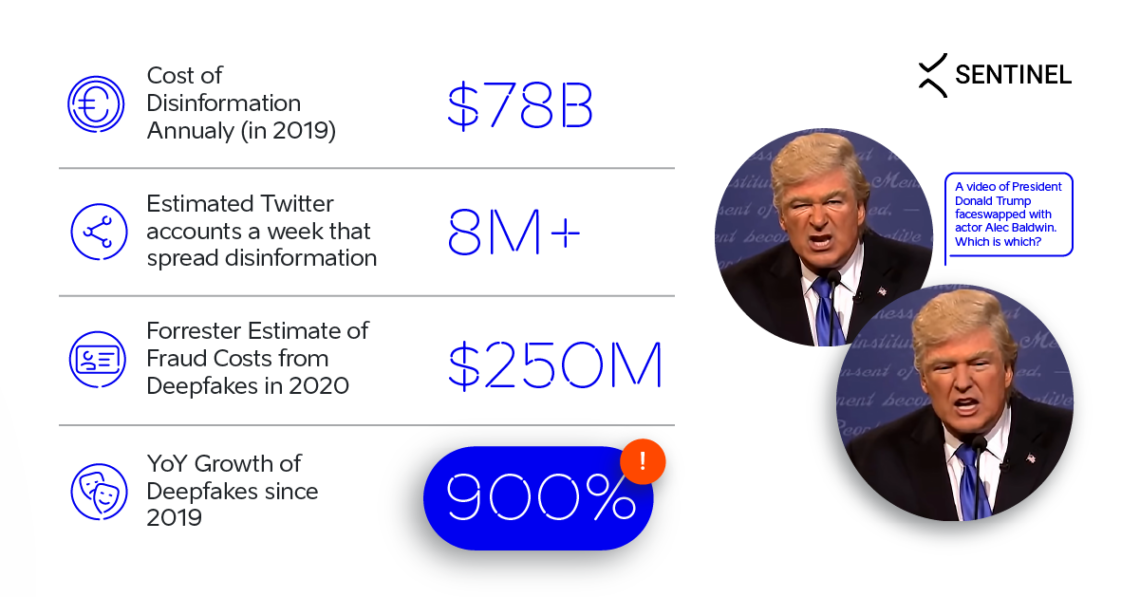Hostile nations and corporations are contributing to the spread of false information online, which poses a notable challenge to democracy, the economy, and societal well-being. Unfortunately, both legislation and the market currently lack necessary tools to effectively counteract information warfare, particularly when it involves the use of artificial intelligence to spread disinformation.
Sentinel
Combating Information Warfare
At the time of carrying out this project, Accelerate had a wider goal of supporting public/private partnerships, which later evolved to a more narrow focus on unlocking new markets by overcoming regulatory barriers.

Introduction
Problem
The number of countries engaging in disinformation campaigns is rapidly increasing, with some reports indicating a nearly 150% rise from 2017-2019. The consequences of spreading malicious misinformation are real and damaging.
False information doesn’t just alter public perception or influence election outcomes; it also has a significant economic impact. In 2019 alone, the financial losses attributed to misinformation reached $78 billion. This trend is exacerbated not only by human-generated disinformation but also by the increasing use of artificial intelligence, including deepfake videos, images, and articles.

Solution
Sentinel proposed creating a public-private information security ecosystem to tackle disinformation, modeled after Estonia’s cybersecurity sector. Their solution emphasized collaboration between the state and private sector, drawing on Estonia’s strengths in digital innovation and international trust.
End Goal
The project aimed to establish an entirely new market in Estonia, dedicated to protecting both the nation and its allies from misinformation, data manipulation, and other harmful campaigns.
Outcome
During the project, Sentinel engaged national stakeholders to create a comprehensive strategy to combat disinformation in Estonia. Emphasis was placed on public-private partnerships to establish an “information security business ecosystem” modeled after Estonia’s successes in cybersecurity. In the project’s second phase, inspired by cybersecurity initiatives, Sentinel collaborated with private-sector entities to drive innovation in information security and disinformation solutions within a rapidly evolving area of national security.
Through this initiative, the project identified strategic actions to integrate disinformation-related initiatives with existing cybersecurity frameworks. For example, Sentinel partnered with the CyberTech program of Startup Estonia to align disinformation-focused projects within the cybersecurity ecosystem, combining resources effectively. A notable achievement was the incorporation of disinformation-focused challenges in NATO’s large-scale cyber defense exercise managed by the NATO Cooperative Cyber Defence Centre of Excellence, demonstrating practical applications of disinformation-focused strategies in real-world cybersecurity scenarios.
As a result of the project, Estonia’s coalition agreement, signed on January 26, 2021, established a national strategic goal for Estonia to lead the European Union in combating disinformation and manipulation of public information. This led to further advancements, such as the University of Tartu launching a Master’s program in Disinformation and Social Responsibility, funded with €600,000 from the US Embassy. The program aims to build a new generation of experts in combating disinformation. Sentinel pivoted its business model based on project insights, successfully securing €25 million for a new model centered around NFTPort.

